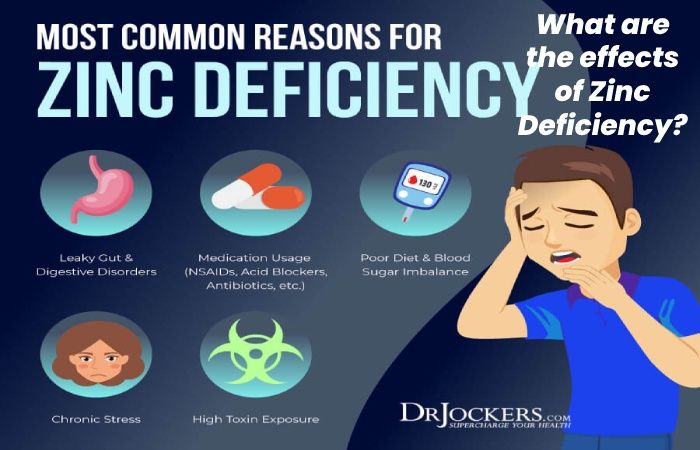What is Zinc?
Zinc – Zinc is a trace element, that is to say, a mineral salt present in tiny quantities in our bodies. This element is nonetheless essential. But, like any trace element, our body cannot manufacture it so that food will provide it.
The human body contains approximately 2.5 grams of Zinc, mainly stored in the organs (liver, pancreas, prostate in humans, eyes, adrenal glands, etc.) and the skin.
What is the role of Zinc?
The roles of Zinc are numerous. We can cite:
- Stimulation of the immune system
- Improved wound healing
- An essential role in cell metabolism by allowing the functioning of a large number of enzymes
- Role in the growth and development of the child and fetus during pregnancy
- Participation in DNA and protein synthesis
- Maintains skin, hair, and nails in good condition
- Role insight, taste, and smell
- Essential antioxidant activity.
What are the Effects of Zinc Deficiency?
Significant Zinc deficiencies are rare and mainly concern developing countries. Indeed, a healthy and varied diet typically provides a sufficient quantity of Zinc to our body.
For example, due to additional zinc requirements: growing child or pregnant women.
Zinc provided by food, undernourished subjects (elderly, for example), patients with anorexia or suffering from malabsorption syndromes (celiac disease, for example) can also show insufficient levels of Zinc.
The effects of a deficiency on the body are variable: growth retardation in children, increased risk of complications in pregnant women, loss of hair and brittle nails, skin problems such as acne, delayed healing, or psoriasis.
Conversely, overdose has no known significant toxic effect but could accompany by copper deficiency. That is why the information on copper must attend the long-term intake.
Zinc: an ally for our skin
Concentrates on a significant proportion of the skin. It participates in particular in the production of collagen. Collagen is an abundant protein in the structure of the skin. It maintains its rigidity and elasticity, prevents tissue sagging.
Could thus have a role in protecting skin aging by its other antioxidant activity.
Collagen is also involved in wound healing. For this reason, indirectly helps speed up the healing process.
The intake of Zinc would help in the treatment of moderate acne. The anti-inflammatory properties of at the cutaneous level and its regulatory action on the sebaceous glands are said to be at the origin of its activity. Thus, drugs or food supplements based on indicates to treat acne.
In addition to usual treatments, could also be effective in patients with psoriasis. This skin disease, which affects more than 2 million people in France, is due to excessive epidermal cells and rapid renewal.
Which foods contain the most Zinc?
Our body assimilates less than half of the contained in our food. Many foods contain it, but oysters contain the most.
Finds in all types of food: red or white meats, organ meats, seeds, nuts and cereals, seafood, especially mollusks.
Is it easy to find out your zinc level?
A simple blood test in your laboratory can allow you to measure the in your body and thus find out if you are deficient.
The search for this artical can also be part of the more general management of your well-being. For this, our laboratories provide you with a “trace element profile” analysis in the Biopredix range, allowing you to obtain a real dashboard of the main essential trace elements. A single comment thus brings together the study of the 12 main trace elements present in your body.


